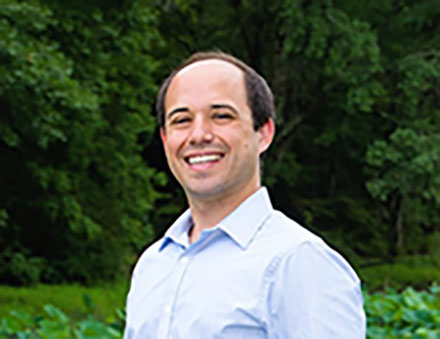Brandon McLeod, the new campus director of USF World at the University of South Florida Sarasota-Manatee campus, arrived in May carrying a valuable lesson he learned during his first jobs as an educator, teaching English as a Second Language to students at the University of South Alabama and later to non-English speakers, ages 3 to 85, in Japan.

Brandon McLeod
“I learned very quickly I couldn’t just make assumptions about people, no matter where they were from,” said McLeod of his experience as an ESOL teacher. “We have cultural norms here in the U.S. and I learned if I tried to apply those cultural norms when interacting with people from an international community, I may not give the message I am trying to give.”
It’s a lesson sure to help guide McLeod’s work at the Sarasota-Manatee campus with USF World, the umbrella for a diverse set of programs designed to help students and faculty, both from the U.S. and overseas, grow as members of the larger global community.
A native of Mobile, Ala., McLeod, who in May received his doctorate in Higher Education from the University of Mississippi, said he was attracted to USF’s location on the Gulf coast, as well as the richness of the offerings that make up USF World. He said he was looking for a place where he could put forth big ideas and initiatives to break down the barriers that often divide people of different languages, cultures and experiences.
Pointing to offerings in business and hospitality as examples, McLeod said it was clear to him that USF is committed to playing that role in the international community.
"We are thrilled that Brandon is part of the leadership team within USF World," said Kiki Caruson, interim vice president for USF World. "He brings to USF expertise in international student student and scholar services and wonderful enthusiasm for broadening his knowledge of study abroad operations and processes. He will be a tremendous resource for students and faculty seeking education abroad opportunities as well as for visiting scholars.
As of fall 2020, USF enrolled 5,974 students from other countries, more than any other university in Florida. A report from the U.S. Department of State’s Bureau of Educational and Cultural Affairs ranked USF No. 19 nationally among public universities and No. 28 for both public and private universities.
In recent years, USF also has won recognition from various international-focused organizations, including the Fulbright Association and the U.S. Peace Corps.
“They already have the international community in focus. We are in a global economy and every field, no matter what it is, is touching on the international community,” McCleod said. “I want to build on what they have already and expand on the opportunities.”
USF’s Sarasota-Manatee campus is an important part of the university’s efforts, McLeod said. One of his goals, he said, is to organize a lecture series for visiting scholars and researchers from overseas.
"It’s already a tight knit community and is accepting of new people and new cultures and new experiences,” McLeod said. “The community is already welcoming the international students in.”
After returning from a second stint of teaching in Japan and teaching ESOL students at the University of North Carolina-Charlotte and nearby Central Piedmont Community College, McLeod expanded on his work in international education at the University of Mississippi. As the international programs advisor and later as assistant director of International Student & Scholar Services, McLeod advised students and faculty on immigration-related issues, along with other duties.
He also enrolled in the doctorate program at Ole Miss. His dissertation was on “Online Learning Readiness Among International Students.”
McLeod said that even before the COVID-19 pandemic, international learning had started to move online as worries grew about the carbon footprint left by world travel. The pandemic further cemented that trend.
The challenge of engaging international students online, McLeod said, mirrors that faced by online education in general. But moving more global learning opportunities online also has created new opportunities not always possible in the physical world, such as detailed virtual tours of Roman ruins or the Louvre.
“It’s a challenge but the programs we partner with and the professors at the university, they do a really good job in integrating cultural aspects in the online environment,” McLeod said.
International learning, whether it’s studying abroad for a semester or interacting on your home campus with scholars and students from overseas, is a vital part of the college experience. Those experiences, McCleod said, provide students, faculty and others valuable opportunities to challenge their worldviews and to consider, and adopt, new ways of thinking and acting.
“International students want to come here because we have great programs and facilities and opportunities not available to them in their home countries,” McLeod said. “Domestic students want to go abroad because they can’t get the same cultural experiences in the U.S.”